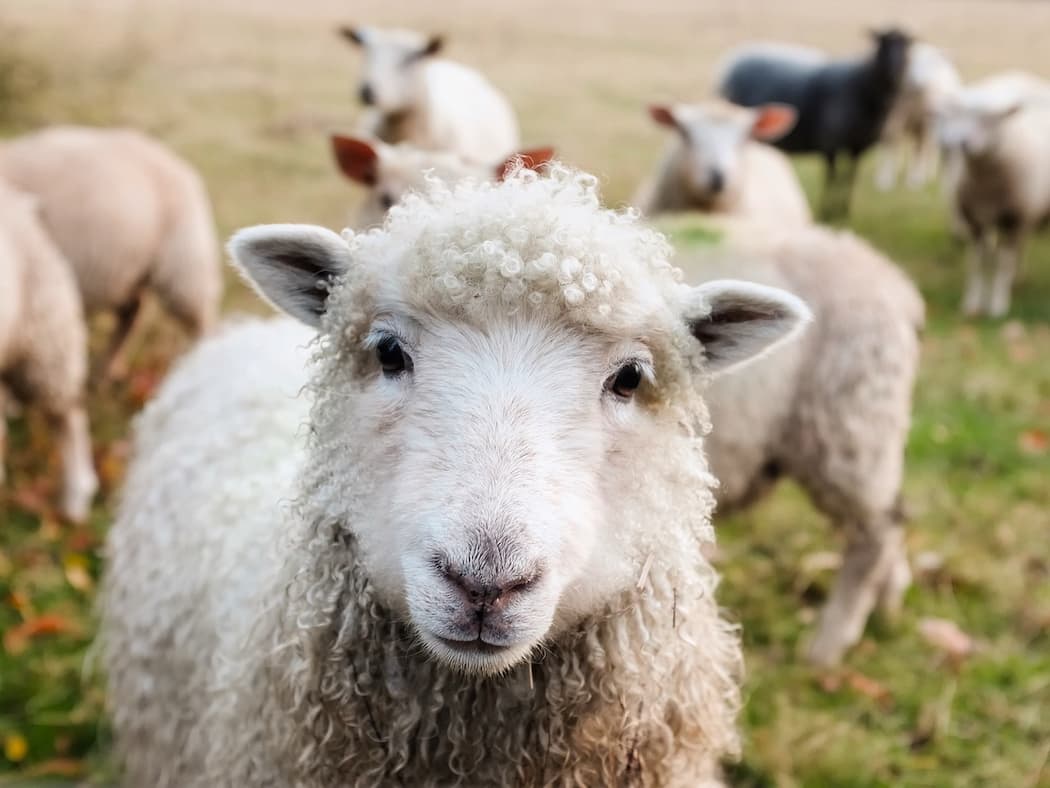But many who saw them leaving recognized them and ran on foot from all the towns and got there ahead of them. When Jesus landed and saw a large crowd, he had compassion on them, because they were like sheep without a shepherd. So he began teaching them many things.
--Parallel verses:
Psalms 23:1-3
The Lord is my shepherd, I lack nothing. He makes me lie down in green pastures, he leads me beside quiet waters, he refreshes my soul. He guides me along the right paths for his name’s sake.
John 10:11-15
I am the good shepherd. The good shepherd lays down his life for the sheep. The hired hand is not the shepherd and does not own the sheep. So when he sees the wolf coming, he abandons the sheep and runs away. Then the wolf attacks the flock and scatters it. The man runs away because he is a hired hand and cares nothing for the sheep.
I am the good shepherd; I know my sheep and my sheep know me— just as the Father knows me and I know the Father—and I lay down my life for the sheep.
Watching animals over a lifetime, one thing becomes very obvious … when they are hungry they let you know. We have two dogs that will bark or nudge you with their noses or whine to let us know they are hungry. A friend of mine has a farm with cows. When a bell is rung, or they are called from the feeding trough, they run to the good food because they are hungry. Sure they can eat field grass all day, but oats and molasses, that is good food worth running for.
Before Jesus came on the scene, the Jews heard from the Lord through prophets, and had not heard a word for over 400 years. The Jewish leaders had become hyper-focused on keeping the rules of the law, and created a system of grading performance to elevate themselves. It went beyond the rules of the law, as they made up their own interpretations of these rules. They were hypocritical because they did not have a word from God and did not try to understand his heart. Instead, they just enforced their own crazy rules along with God’s rules. They ushered in comparative righteousness.
So when Jesus came and he spoke the words of God, he spoke AND LIVED the truth. They had been craving spiritual oats and molasses for over 400 years. And so Jesus had compassion on them, and rightly calls out that they were sheep without a shepherd.
Let’s look at what the Bible says about good spiritual shepherds: 1) They bring peace, nourishment, and refreshment to the sheep, 2) They lead them down the right paths, or the paths leading to righteousness in God’s eyes, 3) They care deeply for their sheep and are willing to lay down their lives for them, 4) They study their sheep and know them by name and they know what type of guidance they need to stay on the path of righteousness.
In order to understand what Jesus meant when he said “I AM the Good Shepherd”, we have to go back to the first I AM statement. This was made by God to Moses when he asked who it was he was addressing. God told Moses, “I AM that I AM” was his name. In essence he was telling Moses that nothing created by the creator God can define God because he was before and is greater than all he created. When Jesus says I AM, in this way in the original Hebrew, he is saying he is God. And when he follows that up with “the Good Shepherd”, he is telling us that one core element of God’s nature and identity is to be a Good Shepherd to his flock, those people who would follow him.
He calls on us to live lives mirroring his words and actions. So how can I be a good shepherd to those who are starving for the good stuff — real spiritual food that connects their hearts to the heart of God?
Lord, thank you for your compassion for the lost souls of Israel. You put your rest on hold to feed them. You loved them and wanted them to be shepherded in the truth. Teach me to become more like you, the Good Shepherd, in leading those around me.


